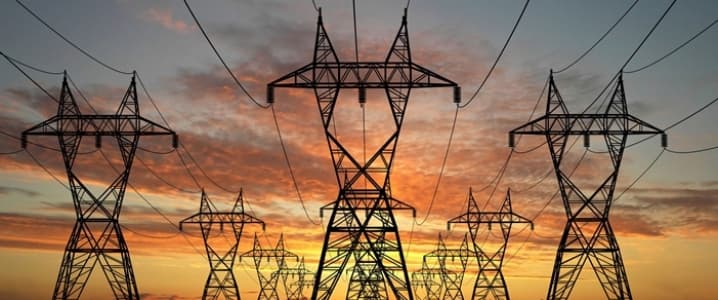In one particularly harrowing scene in the movie the Shawshank Redemption, Tim Robbins asks the brutish prison guard whether he trusts his wife. A question that nearly costs him his life.
In a similar if less dramatic fashion, we ask our readers, “Do you trust your local government (state and county)?” Because in a municipally run electric utility system, that’s who’s in charge. Although ultimately (and technically) the elected officials running the utility answer to voters.
Following the recent cancellation of the V.C. Summer nuclear station in Jenkinsville, South Carolina this July, a joint venture between privately owned SCANA Corp. and state-owned Santee Cooper, the governor has publicly called for the sale of Santee Cooper. At least four neighboring utilities and one in-state corporation are among those believed to be interested.
In a way, Governor McMaster is implicitly saying he no longer trusts the state’s own electric utility managers and is contemplating selling the entire utility as a means of replacing them. Related: Saudi Arabia’s Big Oil Gamble
We certainly understand the political impulse to lash out. There are at least 4.7 billion (each dollar Santee invested in the cancelled nuke to date) good reasons for doing so. And what fuels this public anger is that the state’s PUC and Santee Cooper’s Board will have to address their previous commitments to pay for the now abandoned facility that will never generate so much as a kilowatt of electricity.
Fortunately, the utility now believes that despite the cancellation and due to significantly revised load growth forecasts, they have adequate generating resources.
But threatening to “sell off” Santee Cooper to a privately held utility corporation, like frequently mentioned NextEra or neighboring Duke Power, would mean a rather profound change for Santee’s two million customers throughout South Carolina.
There are several differences between the public and private utilities in the U.S. but the first and most important goes back to trust and ownership. There are two primary forms of utility corporate ownership: for-profit corporations like our investor-owned utilities (IOUs), and not-for-profits like our munis, co-ops and state-owned Santee Cooper, which sells power to 20 co-ops in the state as well as directly to its own customers.
You can find Leonard Hyman's lastest book ‘Electricity Acts’ on Amazon
The main difference between the two is who owns the assets of the business. In the case of the IOUs, assets are owned by the shareholders of the utility.
Or the utility’s assets can be owned by the state or county as with the public entities previously cited. Once that decision—who should own the utility and its assets—is made, the rest pretty much falls into place.
Since Governor McMaster has spoken of selling state-owned Santee Cooper to a privately-owned entity, let’s see what that change implies financially.
First and foremost, it means higher prices for consumers, at least in the long term. Municipal utilities have three substantial cost advantages over their investor-owned brethren: 1.) they are income tax exempt, 2.) they enjoy relatively low-cost financing via the municipal bond markets and, particularly in the Northwest, 3.) have preferential access to low-cost hydropower.
The fourth major difference, although not directly a monetary one, is that munis and similar state-owned entities are not regulated by the state’s public utility commission.
Let’s take a step back and acknowledge something: This is not a level playing field, so to speak. Related: Oil Prices Rise After Strong Crude Inventory Draw
By being mostly tax exempt and enjoying very low borrowing costs, munis and the like have a tremendous cost advantage over the IOUs. And this was the point. From their inception in the 1930s, President Roosevelt acknowledged that the federal government was “putting its thumb on the scale” to help these fledgling entities survive against far better capitalized IOUs like Southern Company or Duke Power.
You can find Leonard Hyman's lastest book ‘Electricity Acts’ on Amazon
In proposing a sale of Santee Cooper, Governor McMaster is effectively telling Roosevelt’s ghost to get lost. The people of South Carolina no longer need the benefits of inexpensively priced electricity. It seems a rather unusual position for a politician in a state seeking more industries where low-priced electricity, in addition to non-union labor, is key.
Both houses of the South Carolina General Assembly would need to approve any sale of Santee Cooper. The legislators willing to speak for attribution sounded cautious about the governor’s plans. We think that’s putting it mildly.
By Leonard Hyman and Bill Tilles
More Top Reads From Oilprice.com:
- What’s Next For U.S. Shale Giants?
- EV Range Set To Triple With New Lithium Battery Breakthrough
- The Dire Consequences Of An Oil Price Spike



















Here we have identical dual nuclear power plants whose costs have gone from $9 to $19 billion with the completion date extended six years, whose design/construction company is bankrupt. The South Carolina public utility (Santee Cooper) whose primary concern is to it's rate payers decides to end construction to best preserve electric rates and that the electric power is not even needed. The Georgia private utility (Southern Power) whose main interest is to it's investors decides to carry on with the nuclear power units, and asks and receives an additional $3.8 billion in federal loan guarantees, bringing the total to $12 billion. It's stated reason is they believe the cost of natural gas will go up significantly over the next 60 years making nuclear cost competitive in the long term.
Hmmm, which is a better decision? Seems it depends on whether you are a rate payer or an investor, and how much natural gas you belief the US has.